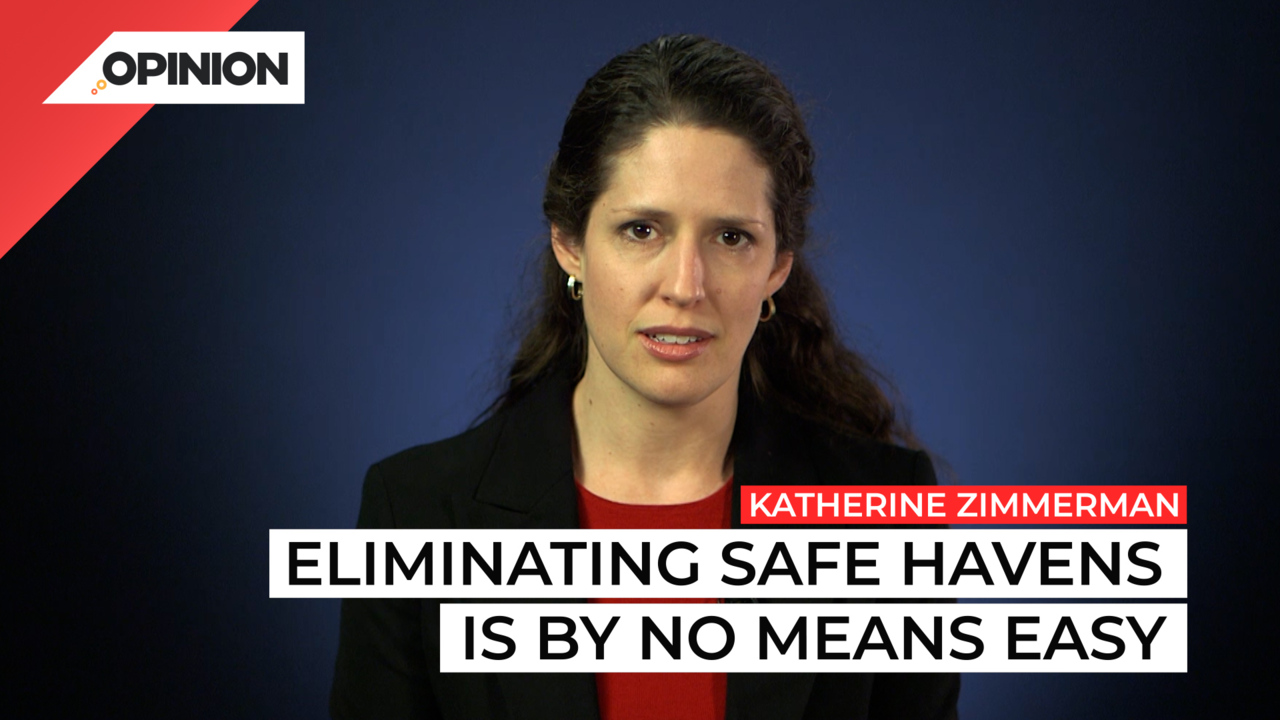
Commentary
-
Our commentary partners will help you reach your own conclusions on complex topics.
The Daring commando raids or drone strikes targeting terrorist leaders barely make headlines these days. US commandos raided a remote cave complex in northern Somalia in January with the goal of capturing a key Islamic State figure. A man who has facilitated foreign fighter travel, and whose network stretched down into South Africa and over to Afghanistan. His name surfaced in assessments of the Islamic State course on after the deadly suicide bombing in Kabul, Afghanistan in August 2021. That killed 13 US service members, and it was added to the killer CAPTCHA list. But that list never seems to grow shorter despite regular attrition at the top. Over the past year, at least nine Islamic state leaders were removed from the battlefield, two of whom were taken alive.
Targeting top terrorists involved in transnational plotting and global operations weakens the Islamic State. But taking them out won’t be enough to win this fight. Instead, the United States must refocus on denying terrorists the safe havens they need to regroup, build strength and plant attacks. terrorist safe havens allow them to recruit new fighters and replace lost resources. Whether the terror groups actually control the terrain or not. They benefit from having a destination for would be operatives, where they can train and prepare for future attacks. The destruction of the Islamic State’s physical caliphate in Iraq and Syria sharply reduced its safe havens in both countries. But some remained. And from there, the Islamic State has begun carrying out increasingly brazen attacks, especially on detention facilities, freeing past fighters and rebuilding its rank and file in Syria. Elsewhere, Islamic State safe havens have actually expanded, growing alongside local African insurgencies that destabilize large regions in poorly governed territory. Eliminating safe havens is by no means easy. It took a resource intensive counterinsurgency campaign in Iraq to remove al Qaeda safe havens in 2007. And replicating that, again, is neither desirable nor feasible.
Counterterrorism partners whom US forces have supported have had some success temporarily in places like Somalia and Yemen. But the groups simply reestablish themselves when partners lift pressure.
Removing groups from terrain is not simply about military victories. terror groups entrench themselves in local dynamics, building relationships with communities that largely reject their extremist ideology by filling some basic needs, even by creating a demand for their services in Mafia like fashion.
Once pushed from terrain, terrorist groups can come back because the local problems persist. So what’s the solution? It’s focusing efforts not just on targeting or taking back to rain, but on identifying how terrorist groups build support and addressing those issues. The answer will be less about security, and more about socio economics or politics. The immediate terror threat from al Qaeda in the Islamic State is low. Now is the time to capitalize on those hard won gains to try a new approach that would deny terrorists the safe havens they need.
Cool, I think there’s only one issue that was
-
US should help Yemen fight Houthis
Recent Houthi attacks on U.S. Navy vessels and U.S. counter-strikes against Houthi targets in Yemen have triggered a foreign policy debate on how the United States should proceed and on whether a larger U.S.-Houthi conflict might be imminent. Houthi leaders say that their aim is to impede Israeli trade and shipping, even though many of… -
US must respond to threat from Iran-backed Houthis
Last month, the commander of Iran’s Islamic Revolutionary Guards Corps Quds Force told the head of Hamas’ military wing that Iran will do “whatever it takes” to support them in its war with Israel. Meanwhile, the Iranian-backed Houthi rebels in Yemen intensified attacks on commercial ships in the Red Sea, prompting U.S. warships to shoot… -
US, Israeli counterterrorism policy must adjust after Hamas attack
Revered Israeli and U.S. intelligence agencies failed to detect the signs of an imminent Hamas attack on Israeli villages near the Gaza Strip. The surprise attack was planned within Hamas’s military wing and highlights both Israel’s intelligence blind spots as well as Hamas’s use of “old-school techniques” like in-person communication. Straight Arrow News contributor Katherine… -
US must sustain pressure against al-Qaeda
The United States and its allies have severely reduced the capacity for al-Qaeda, the terrorist group behind the 9/11 attacks, to organize or carry out any large-scale terrorist attacks against the U.S. homeland. Recent U.S. intelligence assessments suggest al-Qaeda is weaker than ever in Afghanistan, while experts and international observers continue to warn that al-Qaeda is… -
African coups demand US policy changes
A string of recent military coups toppling governments in the African Sahel, from Guinea to Sudan, poses new risks and challenges to the United States. France, formerly a key ally in African security affairs, has also massively reduced its forces on the continent, at times being chased out by pro-Moscow forces. Straight Arrow News contributor…
Latest Opinions
-
 Getty Images
Getty Images
Hunter Schafer’s passport identifies her as male following executive order
-
 Reuters
Reuters
Diddy’s defense attorney abruptly requests withdrawal from case
-
 Getty Images
Getty Images
Trump fires Air Force Gen. CQ Brown as chairman of Joint Chiefs of Staff
-
 Getty Images
Getty Images
Trump restricts Chinese investment in American ‘critical strategic assets’
-
 Getty Images
Getty Images
MLB Spring Training: Can the Yanks hold off the O’s, Sox and Jays once again?
Popular Opinions
-
In addition to the facts, we believe it’s vital to hear perspectives from all sides of the political spectrum.






